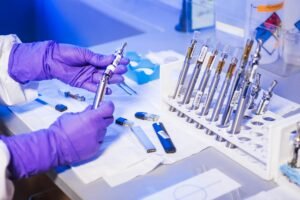Who We Are and Where We Fit
At its core, Medical Affairs is a group of passionate individuals, often holding advanced degrees such as a PhD or MD. Many companies now require a minimum of a Master of Science or a background in a scientific discipline, reflecting the department’s deep commitment to scientific rigor.
Our organizational structure can vary: sometimes we’re nestled within the Research & Development department, sometimes part of Commercial, and sometimes we operate as an independent entity. Regardless of our placement, our common thread is a profound love for science and, crucially, science communication.
What We Do: Bridging Science and Practice
The scope of Medical Affairs is broad and impactful, centered around bringing the latest scientific advancements to the medical community and, ultimately, to patients.
- Scientific Exchange: A significant part of our role involves engaging in scientific exchange with the top scientific leaders in a country. These are often guideline members, society chairs, and leaders in research at both national and international levels. These conversations are vital for understanding the evolving landscape of medicine.
- Getting Insights: We are constantly gathering medical trends and insights from these interactions. We then share these back into the company, influencing strategy and development, and ensuring our efforts are aligned with real-world medical needs.
- Sharing Science: We are the experts on our own drugs and products. Scientific leaders often look to us for in-depth insights to better understand our offerings and make informed treatment decisions. A key differentiator? We are not commercially incentivized. This allows us to provide neutral, balanced, and scientifically accurate information, even acknowledging when our product may not be the best choice. Our ultimate goal is for patients to receive the right drug, at the right dose, for the right condition.
- Data Generation: Through our insights, we identify data gaps. Medical Affairs often initiates studies in collaboration with external investigators (called Investigator Initiated Studies – IIS), which are independently designed but company-funded. We also conduct our own research, often with external co-authors, writing protocols and conducting studies known as Local Data Generations (LDG). These often involve retrospective database analyses, shedding light on therapeutic landscapes or treatment patterns in specific countries.
- Medical Education: We identify educational gaps during our scientific exchanges and then plan, initiate, and execute non-promotional education events. These focus on therapeutic areas rather than specific products, aiming to educate larger groups of physicians and practitioners to optimize patient care. Collaborating with top scientific leaders, we help disseminate crucial knowledge.
- Medical Information: Pharmaceutical companies are obliged to provide information in response to customer requests. For complex or off-label inquiries, specialized Medical Affairs colleagues are uniquely qualified to provide answers. We also often collect adverse events and forward them to our Pharmacovigilance teams.
Why Medical Affairs is the Best Place to Be
For me, Medical Affairs is more than just a job; it’s a calling. Here’s why I believe it’s such an incredible place to work:
- It is very creative: We’re constantly developing strategies and exploring diverse tactics to make a real impact. This requires a high degree of creativity to tackle challenges effectively.
- It is very innovative: Creativity naturally fosters innovation. We’re always experimenting with new ways to educate and interact with our customers, whether it’s through a QR code providing specific information on drug packaging or an app designed for disease education.
- You meet smart people: Engaging with the top scientific leaders nationally and internationally is incredibly rewarding. Every conversation is a learning opportunity, and discussing complex topics with such bright minds is truly special and always enlightening. When I worked in Infectious Disease, I saw many of the doctors I talked to on TV!
- Great colleagues: If you have a passion for science, you’ll find yourself surrounded by many like-minded individuals who share your enthusiasm.
- Collaborations: Medical Affairs acts as a vital bridge, connecting Clinical Development, Marketing, and external doctors and scientists. Our colleagues are consistently grateful for our expertise and advice, and it’s incredibly fulfilling to help them with our knowledge.
I’ll soon be writing about how to land a job in Medical Affairs and how to prepare for an interview, at least from my perspective as someone who hires for these roles. Stay tuned!





